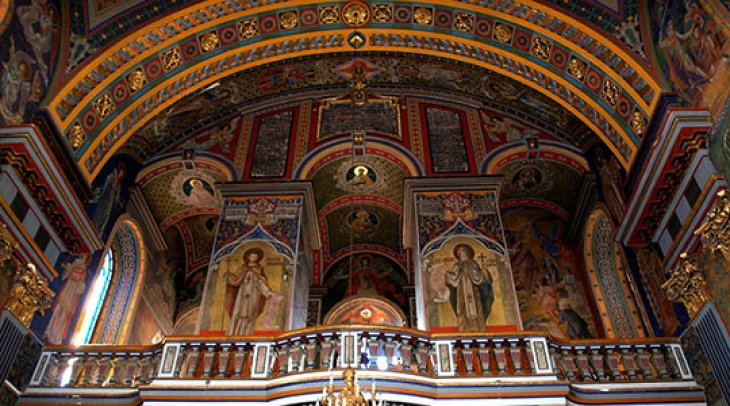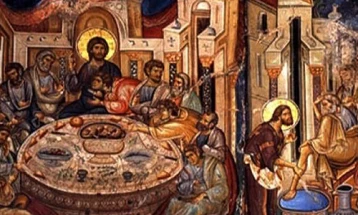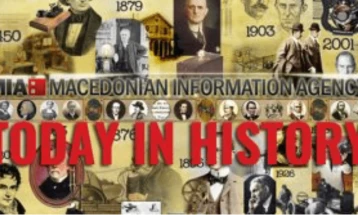
7 November 2022 (MIA)
Macedonian Orthodox Church Calendar
The Holy Martyrs Marcian and Martyrius
These saints were clergy with Patriarch Paul of Constantinople in the time of the Emperor Constantius. After the death of the great Emperor Constantine, the Arian heresy, which had till then been kept under, sprang up again and began to spread, and the Emperor Constantius himself inclined towards it. There were two influential nobles at the imperial court, Eusebius and Philip, both ardent Arians. Through their influence, Patriarch Paul was dethroned and driven out to Armenia, where the Arians strangled him, and the patriarchal throne was seized by the dishonourable Macedonius. At that time, when Orthodoxy had two fierce struggles on hand, against both the pagans and the heretics, Marcian and Martyrius ranged themselves decisively and with all their strength on the side of Orthodoxy. Marcian was a reader and Martyrius a sub-deacon at the Cathedral, and had been secretaries to Patriarch Paul. The Arians first tried to bribe them, but, when the two holy men refused this with scorn, the heretics condemned them to death. When they were led to the scaffold, they raised their hands and prayed to God, thanking Him that they were finishing their lives as martyrs: ‘Lord, we rejoice that we are leaving this world by such a death. Make us worthy to be partakers of eternal life, O Thou our Life!’ They then laid their heads under the sword and were beheaded, in 355. St John Chrysostom later built a church to them over their relics.
Catholic calendar
Engelbert of Cologne
Son of the influential Count Englebert of Berg and Margaret, daughter of the Count of Gelderland. Studied at the cathedral school at Cologne. In a time when clerical and episcopal positions were a part of political patronage, Englebert was made provost of churches in Cologne and Aachen while still a young boy, and of the Cologne cathedral at age 14. Led a worldly and dissolute youth noted for his good looks, keen mind, and wild ways. Went to war to support his cousin Archbishop Adolf against Archbishop Bruno; for this, and for threatening to attack the Holy Roman Emperor Otto IV, both Engelbert and Adolf were excommunicated in 1206. Appointed guardian of the juvenile King Henry VII and administrator of the Holy Roman Empire by Emperor Frederick II in 1221. He supervised the kingdom and the king’s education, and set the crown himself during Henry’s coronation in 1222. Worked for a treaty with Denmark at the Diet of Nordhausen on September 24, 1233. However, for all that he was loved by his people for the stability and security he brought, many of the nobility hated and feared him, and the archbishop had to travel with a troupe of bodyguards. Pope Honorius III and Emperor Frederick II advised Engelbert to protect the nuns of Essen who were being oppressed and harassed by Engelbert’s cousin, Count Frederick of Isenberg. To prevent action by the archbishop, Count Frederick and some henchmen ambushed Engelbert on the road from Soest to Schwelm, stabbing him 47 times. Considered a martyr as he died over the defence of religious sisters. Born c.1185 at Berg and died stabbed to death on the evening of November 7, 1225 near Schwelm, Germany; relics translated to the old cathedral of Cologne on February 24, 1226. Canonised no formal canonisation; proclaimed a venerated martyr by Cardinal Conrad von Urach on 24 February 1226, and by Archbishop Ferdinand in 1618; listed in the Roman Martyrology.







